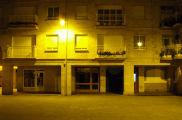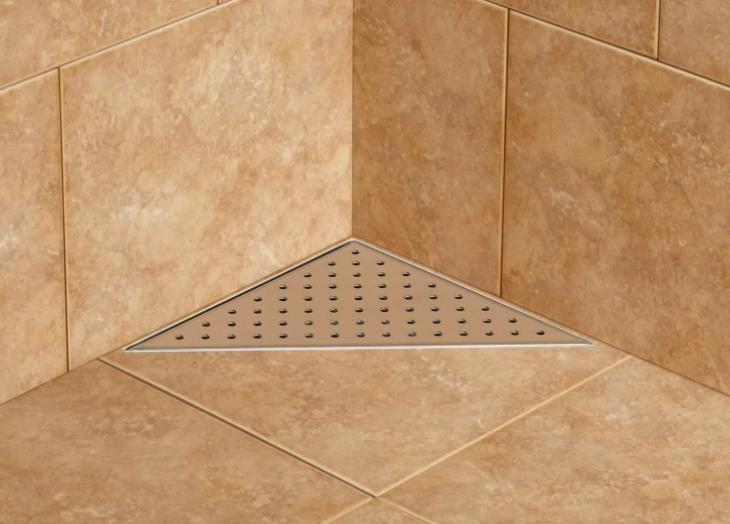Sanctions against neighbours for causing continuous discomfort
Image: Daniel Lobo
Garbage on the stairs, music at full volume, bad smells, fumes ... The inconvenience caused by neighbors is one of the most frequent complaints of neighborhood communities.Finishing these activities can be a simple process -with which the president of the community requires the neighbor the cessation of them -but can also become a long Calvary.If the neighboring neighbor persists in his attitude, the community can take legal actions against him that, although they can end sanctions of different consideration, even reaching the deprivation of housing use of up to three years, they are usually long and cumbersome.
How to act
The neighbors of a property did not stop hearing strange noises and see how numerous children entered and left a house from their building.Alarmed by the situation, they decided to investigate and discovered that it was a clandestine nursery, but until half a year later they did not achieve an eviction order and throw the owner.Before, the community had to suffer a long judicial process that was dilated hard for months and endure that the judge took more than four months to admit the evidence that showed that the people who went to the building were customers of the nursery.
Without reaching these extremes, the inconvenience caused by other neighbors is one of the most frequent complaints of those living in community.The process that must be followed to end them is relatively simple in theory, although in practice it usually becomes more uphill.To act against the undesirable neighbor, the president of the community must notify him of the annoyance in question and expressly ask for the cessation of these activities.If the offender persists in his conduct, the president can report him in the Court of First Instance, but for this he must have the authorization of the rest of the neighbors, who will have to have previously met at the extraordinary board and approve the beginning of the corresponding legal actions.
From that moment on, it is the judge who - with the help of the inspection of municipal agents - must consider whether a crime is being committed or if it is only a community of neighbors too sensitive or alarmist.To do this, he must establish whether the owner is incurring some infraction typified by the Horizontal Property Law.This standard establishes that the owner and occupant of the floor or local "is not allowed to develop in it or in the rest of the property prohibited activities in the statutes, actions that are damaged for the farm or that can be considered by the authority as activities as activitiesannoying, unhealthy, harmful, dangerous or illegal. "
Consequences for the offender

If it is demonstrated that, indeed, the neighbor is developing these types of activities, the consequences for the offender can range from the definitive cessation of their activities or compensation to the rest of the neighbors for the damages caused, to a deprivation of the lawTo use the home that can arrive, in the worst case, at three years.
The penalties vary depending on the severity of the infraction and the damages caused to the community.Another route that can be undertaken in these cases is the administrative type, in which anyone, whether a neighbor of the community or not, can denounce the owner before the police for the illegality of his activities.
In addition to the cases exposed, another type of situation whose solution is more complicated is that in which the neighbor annoyed, but complies with the regulations, so it cannot be sanctioned for its action.However and, according to the principles of good coexistence, the president of the community - to his own initiative or another owner - may attract attention to the discomfort he is causing, as well as the convenience of putting the necessary means tothat this situation can be mitigated and avoid future problems as much as possible.This is stated by Patricia Briones, lawyer of the Technical Secretariat of the Professional College of Farm Administrators of Madrid.
Reasons of denunciation
The most frequent complaints are caused by noise, vibrations and fumes, although in this type of complaints the casuistry is very varied.Other discomfort that can motivate legal action are the storage of hazardous substances, bad odors -processes, for example, a bar with an inadequate ventilation installation -or burdensome businesses for the community, such as clinics orAcademies (by the influx of people on the stairs or the elevator), provided that they are demonstrated that they are a real problem for neighbors.However, the limits of legality are not always easy to establish.
The noise is, in addition to the reason for the majority complaints, the only one with clear limits in the legislation.The law establishes that the noise level may not go from 55 decibels during the day from 8:00 a.m. to 9:00 p.m. or 45 decibels at night.Likewise, the realization of works, which must always have municipal approval, is prohibited outside daytime schedule.It also clarifies that, to be a crime, excesses must be continued, so no one can be denounced by a party night.
As for the rest of the activities that can constitute an infraction, Spanish legislation clarifies that they must submit to the provisions of them in the municipal ordinances and in the urbanization plans of the respective municipalities, although it specifies their nature:
As for the bad odors and the storage of dangerous products, the law urges to process the necessary permits - they impose their own limitations - if you want to allocate your home to an activity other than the home.
When the neighbors are rented
Neighbors living are usually the most bothering.The fact of not having personal relationships or apparently too many responsibilities with the neighborhood community can cause tenants to relax in matters of respect.However, the law establishes that the occupant of the house, and not only its owner, can also be sued by the community and be forced to comply with sanctions.
In addition to the obligations with the rest of the neighbors and the payment of compensation if appropriate, the lessor can terminate his contract without prior notice, since the fact that annoying activities take place in a house for the normal coexistence in the building is, according toThe urban lease law, sufficient cause for the immediate expulsion of the tenant, provided there is a judicial judgment that demonstrates it.However, the law also establishes that these excesses must be continued, so no one can be denounced, for example, for a night of excesses.
Etiquetas:
COMMUNITY ACTIVITIES DISCLAIMS NEIGHBORHOODS









3917